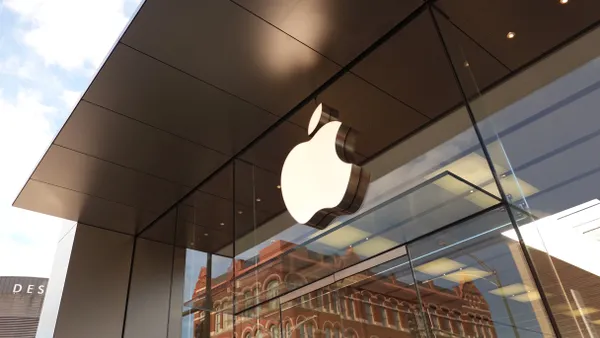Dive Brief:
- The Consumer Financial Protection Bureau in a Wednesday press release warned companies that issue store and airline credit cards that they could be breaking federal laws if they devalue or fail to deliver on promised rewards after a consumer becomes a card holder.
- The federal agency also provided a notice to the Federal Deposit Insurance Corporation, the Office of the Comptroller of the Currency, the Board of Governors of the Federal Reserve System, and the National Credit Union Administration spelling out the federal law on the card issue for the purposes of enforcement.
- “The CFPB is taking aim at bait-and-switch tactics and promoting more competition in credit card markets to protect consumers and give people more choice,” CFPB Director Rohit Chopra said in the release.
Dive Insight:
The CFPB statement comes as the agency keeps up a campaign to improve services and reduce fees for credit card holders. Earlier this year, the CFPB finalized a rule that sets a “threshold” of $8 for credit card late fees that can be imposed by large card issuers, and eliminates automatic inflation increases. That rule has been challenged in federal court by the U.S. Chamber of Commerce, which argued the CFPB had exceeded its authority.
With President-Elect Donald Trump taking office in January, and Republicans in Congress howling about last-minute federal rule changes before he takes office, Chopra is likely to continue facing push back on such efforts that businesses consider overly restrictive.
In the statement today, Chopra put companies issuing cards on notice that underhanded practices with respect to servicing card holders, particularly those in reward programs, may be illegal. “If consumers’ receipt of rewards is revoked, canceled, or prevented based on buried or vague conditions, that may be an unfair or deceptive act or practice,” the agency’s release said.
The agency also knocked websites that offer consumers tools for comparing credit card offers, but do so with biased incentives. It said the companies that offer those platforms may be breaking the law when they steer consumers to cards and receive kickbacks in exchange. The agency didn’t immediately respond to a request for comment on which sites it was referencing.
To correct the problem of too little unbiased information in the market, the CFPB also said today that it had created a new tool for consumers to compare card offerings, interest rates and benefits. The new interactive website is based on data from 150 companies that offer such cards, and it lets consumers filter for the type of card they’re seeking, based on their location. The agency contends the site includes better terms from lesser known issuers.
The CFPB backed up its enforcement threat Wednesday with new research into retail cards. It noted that such airline and store cards are mainly issued by four large banks and generally have higher interest rates. The agency didn’t immediately respond to a request to name the banks.
The agency called consumers’ attention to higher interest rates on some cards. Specifically, the CFPB said 90% of retail cards in one of its recent surveys had maximum annual percentage rates above 30%, as opposed to only 38% of general purpose cards with rates at that level. As of this month, the APR for top retailers’ private label cards averaged 32.66% on new accounts, the release said.















